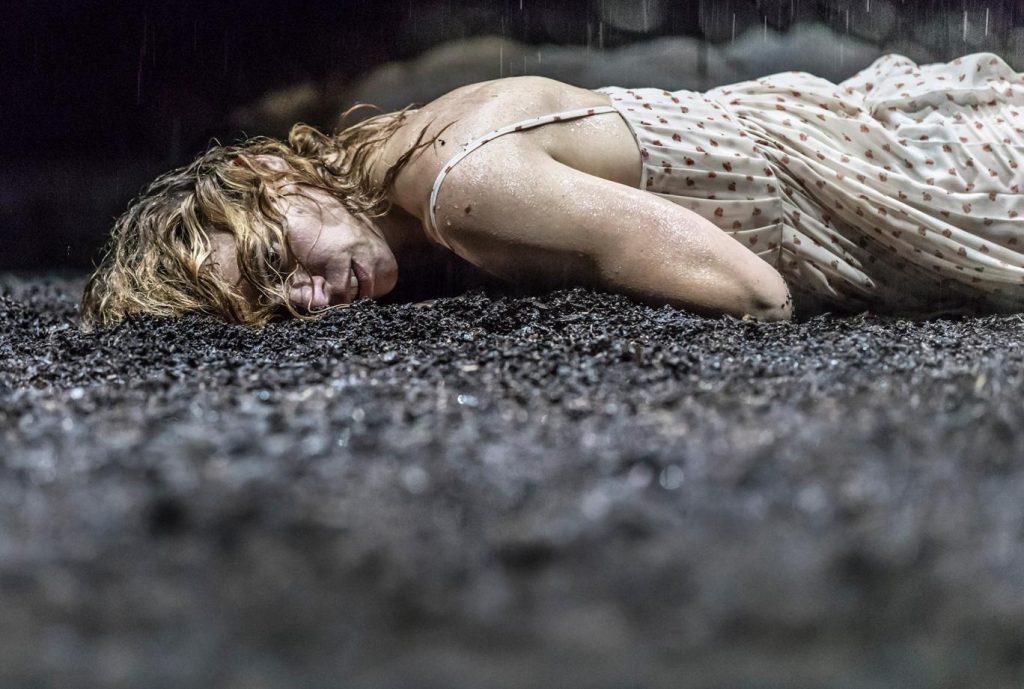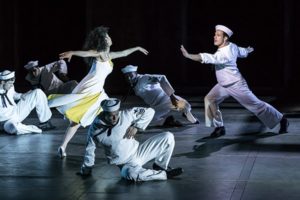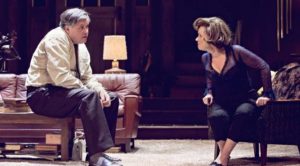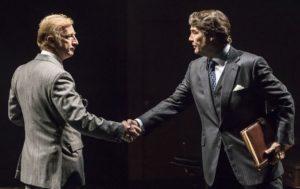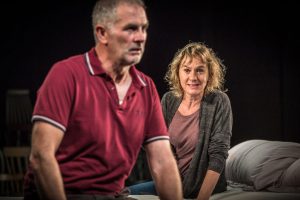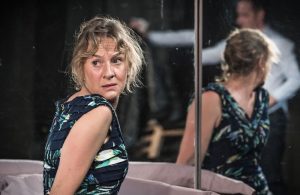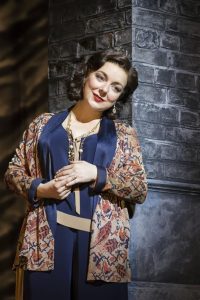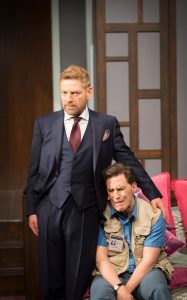DC Moore’s Common- I liked this ‘dud’
[usr 3]
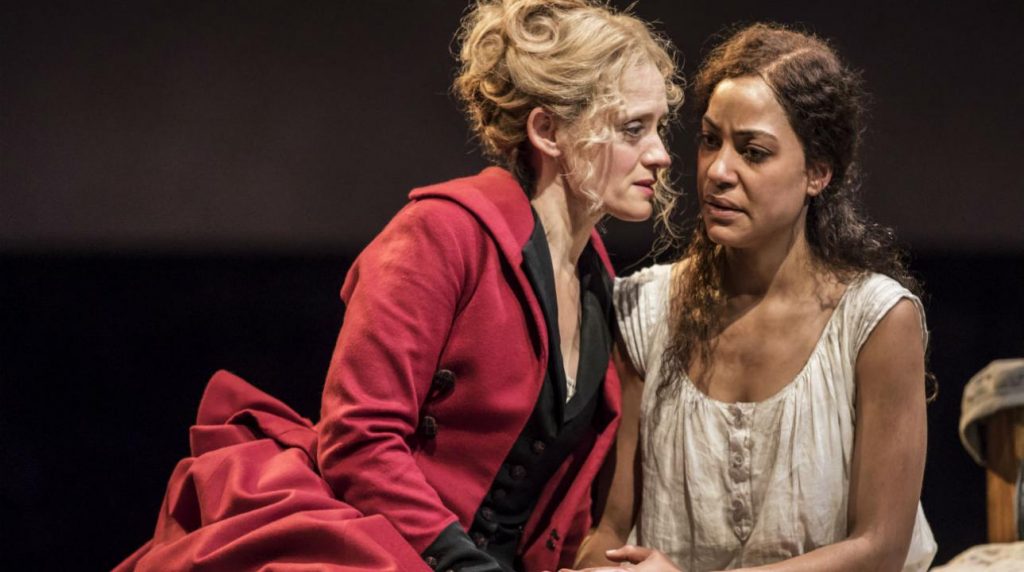
How much notice do you take of theatre critics? These days there are not only the heavy guns of the professionals but also the hundreds of bows and arrows of amateur reviewers. So, it is possible to get a good consensus of what a theatre show is like and whether it is well or badly done, especially if there is a consensus.
Given the price of West End tickets, it’s probably sensible to do some research but in the end you must use your own judgement on whether the critic’s reasons for loving or hating a show stack up and whether they match your reasons for making a decision.
Theatres try to get you to book in advance so you’re committed before you ee the reviews. Star names, a ‘limited’ run, a special offer are all part of the incentive. For me, Common at the National Theatre is a case in point. I bought tickets in advance as soon as it was announced. I thought a new play by DC Moore was likely to be good, I wanted to see Anne-Marie Duff, an actor I admire, and the director Jeremy Herrin was responsible for the brilliant People, Places And Things and This House.
You can imagine how disappointed I was to see so many one star reviews, the worst of which said, ‘It has been cut from 3 hours to 2 hours 20 minutes, which is exactly 2 hours 20 minutes too long.’ The critics said the language was obscure and the story incoherent.
My experience over many years of theatre going is that I don’t always agree with the critics. They see a lot of theatre and get jaded. They have their prejudices. I never forget that the critics didn’t like one of my favourite musicals Les Miserables when it opened.
Common was a hit for me
It was a few weeks after the press night by the time I saw Common so the director may possibly have done some work on it. All I can say is, this didn’t seem like the ‘dud’ that I’d read about. I found the language easy to understand. It’s undoubtedly strange the way words and phrases are mashed up but I found it poetic and evocative.
I have some sympathy with the suggestion that the plot was hard to follow. Ostensibly it was about the enclosing of common land at the beginning of the 19th century to allow it to be owned and exploited by the few rather than the many. It also touched on the use of immigrant labour from the North and Ireland to carry this out on behalf of the landowners. The huge scale of the Olivier auditorium suggested that there were ‘big issues’ of capitalism and communism being explored.
Excellent acting by Anne-Marie Duff and Cush Jumbo
At its centre is an intimate story of a woman from a poor agricultural community struggling to make a success of herself in the sinful big city so that she could return to her first love. This did make the narrative confusing at times because all the contradictory things she did, whether in support of or undermining the enclosure of land, was to the end of winning the woman she loved.
Even so, it was not ‘incoherent’ and there were some outstanding theatrical moments of affection, manipulation and explicit violence. I found it a good evening of theatre helped by excellent acting by Anne-Marie Duff and Cush Jumbo.
So, my bow and arrow gives Common three stars and the thought that if it’s ever revived in the Dorfmann or another more suitable small scale venue, it could be earn more.
A version of this review appeared on the Seven Experience website
See my video review below or at One Minute Theatre Reviews on YouTube


